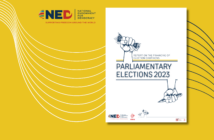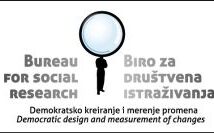In a small country such as Montenegro, with only 630,000 inhabitants, the state in which the government has not changed for three decades and which is being described as “captured”, which is an illustration of systemic corruption and a strong influence on private interests in decision-making,1 the value of public procurement reached the sum of half a billion euros in 2017. This information is sufficient to say how vast space there exists for corruptive actions in this area, which is otherwise recognized as one of the most vulnerable to misuse, and therefore transparency, competition and mechanisms for controlling public procurement procedures should be at a much greater level than they are.
Within the framework of the accession negotiations with the European Union, Montenegro has opened a chapter on public procurement at the end of 2013. At that time, Montenegro was obliged to enter into its national legislation the standards of the European Union directives, but Montenegro is very late with these tasks. Namely, Montenegro did not yet adopt a new law on public procurement, which would fully comply with the legal framework of the European Union, and is also significantly late with the beginning of application of the electronic procurement system, and in mid-2017, the Government suddenly changed its existing law, making a step backwards in fulfilling the obligations of the European Agenda.
Amendments to the Public Procurement Law have undermined the overall transparency and competition of public procurement procedures as well as control mechanisms, so the European Commission has expressed its concern in the latest Montenegro Progress Report and assessed that the impact of anti-corruption measures is limited and that the overall procurement system remains cause for concern.
For years, Montenegro has no concrete results in the fight against corruption in public procurement, and its procurement system chronically suffers from numerous legal, personnel and technical shortcomings, despite its Public Procurement Law being based on some of the basic principles that are present in European practice, such as cost-effectiveness and efficiency of public funds, competition, equality or transparency. There are still shortcomings in planning public procurement in a proper manner, procured goods and services often do not justify their purpose, technical specifications are often adjusted in a way that favors individual bidders, contracts are changed by the conclusion of an annex after their signing, and monitoring of their implementation is almost completely absent. All this is outlined in the Shadow Public Procurement reports in Montenegro in previous years.
Therefore, this Shadow Public Procurement Report for 2017 focuses on problematic provisions of the amended Public Procurement Law from the same year, and these are mostly presented through individual practical examples that open the question of real motivations of the Government to amend certain legal solutions. Part of the Shadow Report is devoted to insufficient capacity to fight corruption in the area of public procurement, as well as to additionally undermined transparency of public procurement, which is significantly aggravated by the refusal of state bodies or state companies to disclose documentation regarding individual procurements. The Shadow Report also contains recommendations for improvement of legal solutions in the Montenegrin Public Procurement System.
- Complete report download HERE (PDF)



